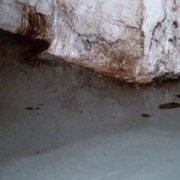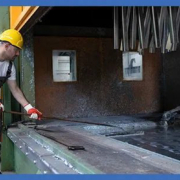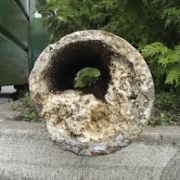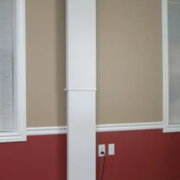What To Expect After Repairing Basement Wall Cracks – Alpharetta, GA
Dealing with basement wall cracks involves much more than simply solving the aesthetic aspects of the cracks. Cracks in a foundation are often an indication of a much deeper problem such as high hydrostatic pressure caused by poor landscaping or faulty gutters. It is important that these problems be dealt with before the cracks in the wall are dealt with. This ensures that the cracks do not happen again and that the problem does not become worse.
Once the repairs are completed, it is important to ensure that they were effective. The involvement of your contractor in the activities following the repair of basement wall cracks will depend on the underlying cause of the cracks and the solutions applied.
Some repair solutions require follow up visits by the waterproofing contractor for maintenance. Steel beams that have been installed to support a cracking wall that was bowing inward will have to be adjusted with time to straighten the wall. Your contractor will therefore have to follow up with this solution to ensure that the steel beams continue to provide structural support to your leaning wall.
There are modern repair solutions that don’t require follow up visits from your contractor for maintenance. The installation of carbon fiber sheets to support walls that are bowing will not require maintenance. There is no need for future adjustments of the carbon fiber sheets.
If the repair of the basement wall cracks involved structural repair, you may have had to apply for permits to carry out these repairs. Repairs that require permits often require a final engineering or plumbing test and report. The contractor may therefore contact a third party engineer who will visit your home to inspect the repair and carry out tests to ensure that the repair was effective.
Once the testing has been done, a report is sent to the contractor. The contractor will then close out any permits they may have applied for with your local authorities. It is a good idea to ask about permits and their requirements before embarking on any particular type of repair.
You will then be required to pay for the job in full. Keep an eye on your repairs to determine whether there is any further leaking. If your contractor provided you with a warranty, they may carry out follow-up repairs and maintenance at no additional charge to you if there is further leaking.




